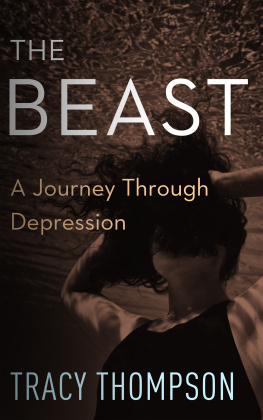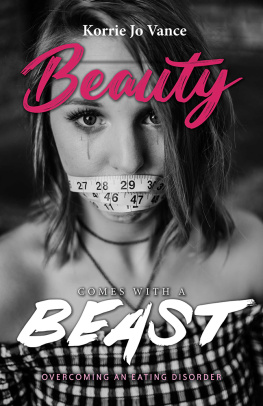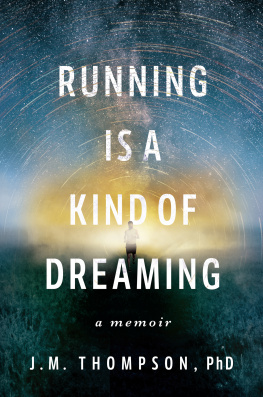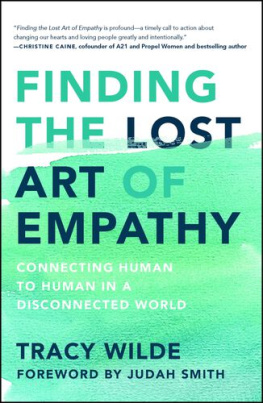The Beast
A Journey Through Depression
Tracy Thompson
Copyright
Diversion Books
A Division of Diversion Publishing Corp.
443 Park Avenue South, Suite 1008
New York, NY 10016
www.DiversionBooks.com
Copyright 1995 by Tracy Thompson
All rights reserved, including the right to reproduce this book or portions thereof in any form whatsoever.
Journey to the Interior, copyright 1961 by Beatrice Roethke, Administratrix of the Estate of Theodore Roethke. From The Collected Poems of Theodore Roethke, by Theodore Roethke. Used by permission of Doubleday, a division of Bantam Doubleday Dell Publishing Group, Inc.
For more information, email
First Diversion Books edition October 2014
ISBN: 978-1-62681-434-9
For my husband
In the long journey out of the self,
There are many detours, washed-out interrupted raw places
Where the shale slides dangerously
And the back wheels hang almost over the edge
At the sudden veering, the moment of turning.
Journey to the Interior
THEODORE ROETHKE
Contents
Prologue
My body aches intermittently, in waves, as if I had malaria. I eat with no appetite, simply because the taste of food is one of my dwindling number of pleasures. I am tired, so tired. Last night I lay like a pile of old clothes, and when David came to bed I did not stir. Sex is a foreign notion. At work today I am forgetful; I have trouble forming sentences, I lose track of them halfway through, and my words keep getting tangled. I look at my list of things to do today, and keep on looking at it; nothing seems to be happening. Things seem sad to me. This morning I thought of the woman who used to live in my old house, who told me she went to Sears to buy fake lace curtains. It seemed a forlorn acthaving to save your pennies, not being able to afford genuine lace. (Why? a voice in my head asks. The curtains she bought looked perfectly nice.) I feel as if my brain were a lump of protoplasm with tiny circuits embedded in it, and some of the wires keep shorting out. There are tiny little electrical fires up there, leaving crispy sections of neurons smoking and ruined.
At least thats how it seems. Sitting in the subway station, waiting for the train, I realize I am not thinking straight, so I do what Ive done before in this situation: I get out a pen and paper and start writing down what I call my dysfunctional thoughts. Just between the car and the subway station escalator, I accumulate these: Everybody but me is in shape. I am fat. Then: My career is going nowhere. Im never going to get a promotion at work. They think Im second-rate. And: My relationship with David is not working. Im getting irritable and withdrawn, finding fault. More proof that I cant handle intimacy.
Writing these down doesnt help immediately, as I knew it wouldnt, but I file them away for future reference. I take it on faith that I am thinking in distorted ways at the moment. But Im never really sure of that when it would most help to know. I dont even know when this current siege begana week ago? A month ago? The onset is so gradual, and these things are hard to tell. All I know is, the Beast is back.
It is called depression, and my experiences with it have shaped my lifealtered my personality, affected my most intimate relationships, changed the course of my careerin ways I will probably never be fully aware of. These days, however, the Beast has been corneredwhich is to say that he escapes from time to time, but I have some control over him. I have an array of new antidepressant drugs at my disposalfar more powerful than traditional antidepressants, faster-acting and with fewer side effectsand a psychiatrist with whom I have developed trust and a good working relationship. After many years of pretending the Beast did not exist, I now have deep respect for my adversary.
I call him Beast because it suits himthough I imagine him not as a creature but as a force, something that has slipped outside the bounds of natural existence, a psychic freight train of roaring despair. For most of my life, the Beast has been my implacable and unpredictable enemy, disappearing for months or years, then returning in strength. He appeared in the most benign of guises, hiding in plain view behind a word I thought I understood, but didnt. I was using the word depression as early as fourteen in my diary, but I did so in the nonmedical sense of the wordthe ordinary, transient despair of being a teenager. Yet, even in grammar school, there were long stretchesweeks, maybe months, it is impossible now to saywhen every morning I counted the hours that had to pass before I could crawl into bed again, times when I escaped to the shower and turned on the water full blast to disguise the sound of my weeping, unhappy over something I could not name. I suspected something was wrong with me, that this flat and colorless world I lived in was different from the one most other people lived in, and I wanted desperately to be normal. At the same time, I had no real assurance this was not normal. Everybody gets lonely sometimes, my mother told me, when I tried to tell her what it was like. How could she help me? I had no words to describe this thing. And she suffered from depression too.
And so, very early, I began to try to understand.
I trace the beginnings of that endeavor back to a winter afternoon when I was fourteen, sitting in my bedroom in a suburb of Atlanta. In my lap was a blank green stenographers pad; in my hand was a pen. I know the precise date, because its recorded there in my careful schoolgirl penmanship: December 29, 1969. I was beginning a private journal and, I wrote, I had two reasons for trying this experiment. One was to practice my writing. The other purpose was to put down the cause of my depressions and to see if I can help myself that way It sounds horrible, and it is, but a couple of times I have thought how nice it would be to kill myself!!!
As time went by, depression became more than just a personal struggle, but also a subject on which I could practice my writers craft, even in those long years when I did not know what I was describing. It seemed natural to become a journalistan occupation hospitable to persons with mood disorders. Having a mood disorder is not synonymous with having artistic talent, but it is true that people in the so-called creative professionswriters, actors, artists, musicianshave a higher than normal incidence of such illnesses, and there are also a disproportionate number of alcoholics in these fields whose drinking may be an attempt to medicate the anxiety of depression. I didnt know this when I was twenty-one, the year I became a newspaper reporter. I just knew I loved newspapers. Mostly, I loved the people who wrote for them: the hard-bitten colleagues who chortled over the dead stripper whose will directed the undertaker to put a whip and a jar of peanut butter in her coffin (What for? I asked, and they guffawed), but who turned to mush over a story about a child lost in the woods. I wanted, of course, to write brilliant fictionbut real life kept intervening. It was so much more interesting. I watched and noted, and what I saw and felt went into my journal. It was an adolescent undertaking, still; every incident was invested with high drama in those pages, and hardly a day went by when I did not note my psychic temperature. It would be years before I developed an interest in brain biology, before I would be able to see the story I was researching as bigger than myself. But those scraps of raw material would prove useful later, when I searched them for patterns. I was, as they say in the newspaper trade, saving string.
In 1992, two years after I began to get effective drug therapy for my depression, the personal and the professional merged in an article I wrote about my experience for the









